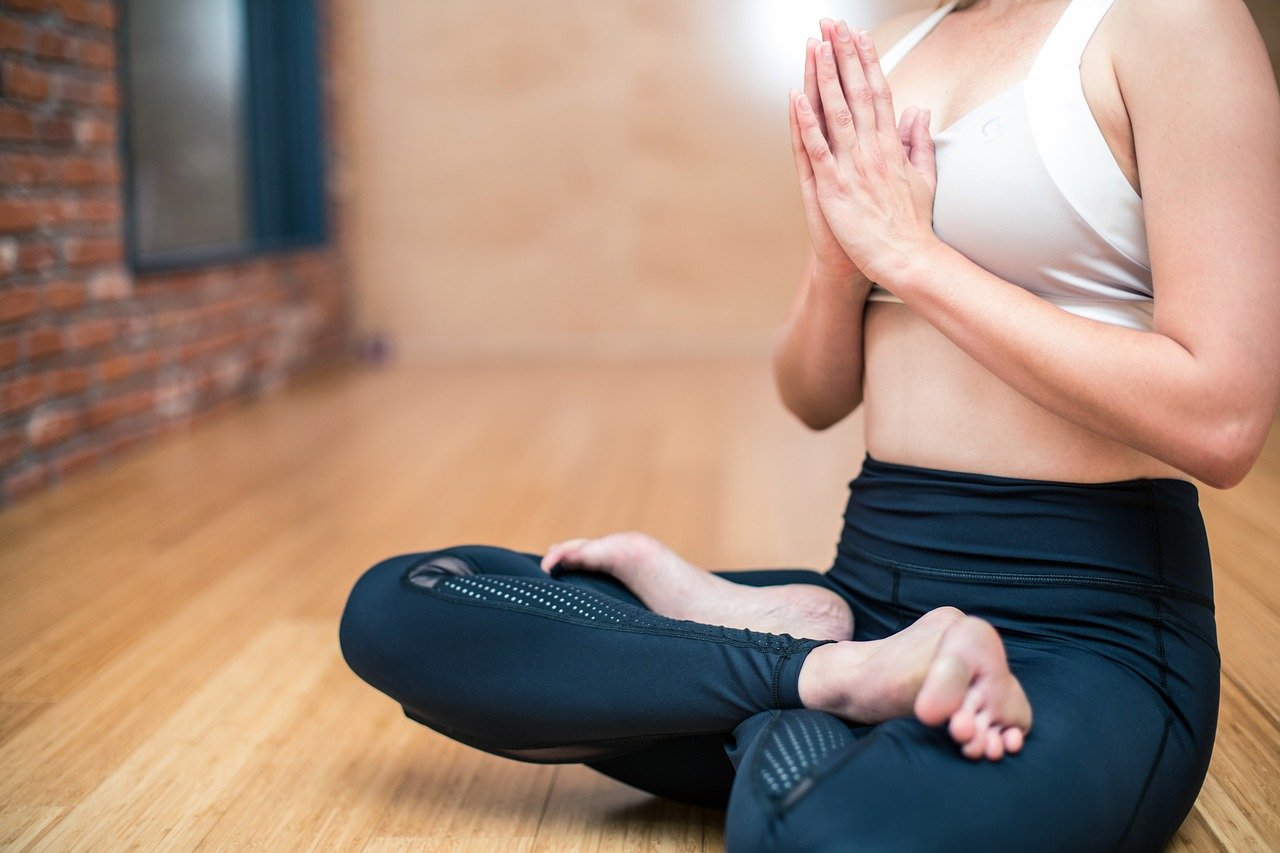Changes in our skin as we age are inevitable, including loss of moisture, changes in…

Skincare & Stress: 10 Tips to De-Stress for Better Skin
It’s no secret that your skin struggles when you’re under stress. With September already here and seasonal stock in shops, you’re probably already planning for the holiday season on the horizon. How else can you hope to keep on top of things?
But whether you’re on the ball and ahead of the game, or one for the last-minute rush, this time of year almost always brings one thing: a boatload of stress that makes the relaxing, lazy days of summer seem long gone.
For your skin, that might mean a flare-up of eczema, acne or even psoriasis that you thought you had under control.
Or it could mean you’re overeating, stress eating, or indulging in an extra glass of wine in the evening. All these factors contribute to damaging your skin. And that can lead to low mood when the mirror no longer reflects what you want to see.
Low mood leads to more stress, and the cycle continues… but why?
The Skin & Mind Are Connected
Your skin releases chemicals known as neuropeptides. These chemicals have the job of protecting your skin from trauma and infection. Unfortunately, their release can also lead to itching, tingling, heightened sensitivity, inflammation or numbness.
You may have already guessed that neuropeptides can also cause pre-existing skin conditions to flare up. To top it off, they also travel to our brain, where the chemicals that control our emotions are regulated. The neuropeptides affect these chemicals, which cause us to feel more stressed… and can cause further issues with our skin.
There’s an entire field of medicine that investigates this connection between the skin and the mind, known as psychodermatology. It’s only been around for a relatively short time, compared to other fields (the first clinic began in 1972), but it’s a growing area of interest.
We’d like to hope that psychodermatologists can break the connection, or at least help us manage it. It’d be wonderful to think we could do such a thing. But in the meantime, the best way to prevent your mood from affecting your skin is simply stress management.
Tips to De-Stress
The scientific term for a state of relaxation is called the parasympathetic state. But we know it’s difficult to get there sometimes. The world is fast-paced, and by now, most of us are psychologically wired to expect instant gratification in more areas of our lives than not. The trouble is, when it comes to your mental health, quick results aren’t easy to achieve.
It takes conscious work to keep your calm.
And though several of the tips below require you to take a little more obvious time for yourself, some are lifestyle changes that you’ll hardly even notice.
1. Work Out More Often
The main stress hormone in the human body is cortisol. And one of the most effective ways to burn off cortisol is through vigorous exercise.
Working out helps to regulate your glucose and insulin activity, which is great news for stress levels. Still, it’s important to be realistic. We’ve all been guilty of setting lofty exercise goals at least once, and if you want to use exercise as a tool to destress, then you need to choose an activity you can stick to.
For exercise to really help, you need to be working out regularly. Which means daily, or at least a few times a week. We’re not suggesting you jog away hours of your life each day, but there are plenty of ways to work up a sweat that you can incorporate into your routine.
Try taking a walk around your neighbourhood or dancing around to your favourite album. Or, if you’re desperate, how about cleaning the house from top to bottom!
2. Be More Mindful
Mindfulness has been a bit of a buzzword these last few years, but its meaning can sometimes get lost. When we say try to be more mindful, what we really mean is find time to take care of yourself properly.
Importantly, if you can’t squeeze in every self-care tip in the book, try to take some time to actively relax.
Yes, actively relaxing can sound a little counterintuitive, but activities such as yoga, pilates and tai chi are all great ways to move your body and free your mind. Even taking half an hour for some deep breathing exercises can help clear your head and reduce your stress levels. You don’t have to be a master of meditation to take part, just promise to take the time to yourself.
Try searching online for guided breathing and relaxation exercises to get started.
3. Switch to a Balanced Diet
There are hundreds of advantages to giving more consideration to your food. Reducing your stress levels is one of them.
When your body lacks essential nutrients, it causes metabolic stress.
Opting for whole foods, fresh fruits and vegetables, lean meats and proteins can all help to improve this. If you’re not convinced you could go veggie or vegan, try it out once a week. Choose one day to go plant-based and see how you get on.
4. Consider Your Eating Environment
‘Food hygiene’ is fast becoming an incredibly popular trend these days. It essentially refers to the environment in which you eat and the experience of eating. In some cultures, food hygiene is a given – for example, many people eat around the table with friends and family, no matter what.
In the UK, it’s become more and more common to eat alone, or on the sofa while bingeing the latest Netflix drama. But eating whilst distracted actually increases your stress levels.
It’s far better to consider your meal, chew carefully and pay attention to your stomach’s signals that you’re full!
Yes, this means no more television during meals. But it also means you’re less likely to overeat and gain weight (that you only gained through being distracted). Which is always a plus.
5. Detox Your Body
We don’t mean drink the latest fad juice cleanse and give yourself a bad stomach for the next week. No, we mean reducing the toxins that many of us voluntarily put in our bodies on a regular basis.
Drinking alcohol and smoking can build up your toxin levels to the point where it physically and mentally burdens you. If you’re drinking a glass or two of wine each night on the sofa, the chances are you’ve forgotten what it feels like to wake up fog-free and to get a good night’s sleep.
Cut back on the booze and smokes, and see how much of a difference it makes. If you can quit altogether, then all the better.
6. Touch
What we really mean is encouraging your body to release endorphins by engaging in particular activities.
Physical contact can release endorphins – aka your natural happiness chemicals. Sadly, in the last 18 months, many of us have seen a drop in the contact we need to keep our stress levels in check. Guidelines have warned us against hugging our friends and family, but as things get a little more normal, we can get back that warm, happy feeling.
Getting a massage, hugging others, cuddling your pets and intimate activities can all contribute to the release of endorphins. But then, you don’t need us to tell you that playing with a puppy makes you happier, right?
7. Get Happy
Speaking of happiness, it’s not just physical contact that releases endorphins. Any activity that cheers you up and lifts your mood gets the good hormones going too.
So, go ahead and sing unashamedly in the shower, make art, laugh at bad Dad jokes. Because guess what? – It all adds up to less stress.
8. Chat Away
Another one that’s been a struggle for many in the last year and a half, but talking is great for de-stressing.
You’ve probably heard the saying that a problem shared is a problem halved. Though we can’t guarantee that’s true, what’s certain is that your interpersonal connections influence your stress.
When we chat with friends and family, we feel supported, which alleviates stress.
9. Get Outside
It’s long been considered therapeutic to get out in nature. Spending time outdoors, breathing fresh air and visiting open spaces is a great way to relieve stress. Even taking a quick walk on your lunch break can work wonders.
If that’s not workable for you, then plan a hike over the weekend, or visit your local park.
At the very least, you can achieve some of the same benefits by bringing nature indoors and investing in a few house plants.
10. Sleep More
Remember being told you slept too much as a teenager? Well, we’re not saying you need to go that far, but a healthy sleep routine can do a lot for improving your stress levels.
Going to bed earlier is good for your skin for many reasons, but it also controls stress levels. This is especially true if you take steps to ensure you fall asleep quickly. Avoid blue light such as the television and your mobile phone for a few hours before you go to sleep. You could also try dimming the lights earlier, and stop snacking after 7 pm.






